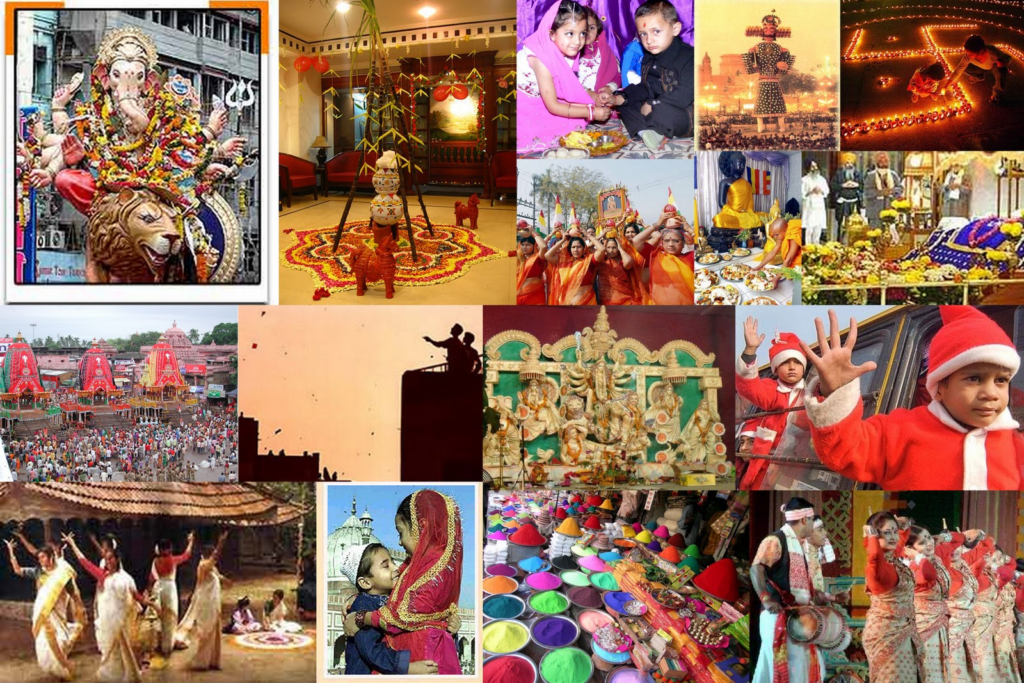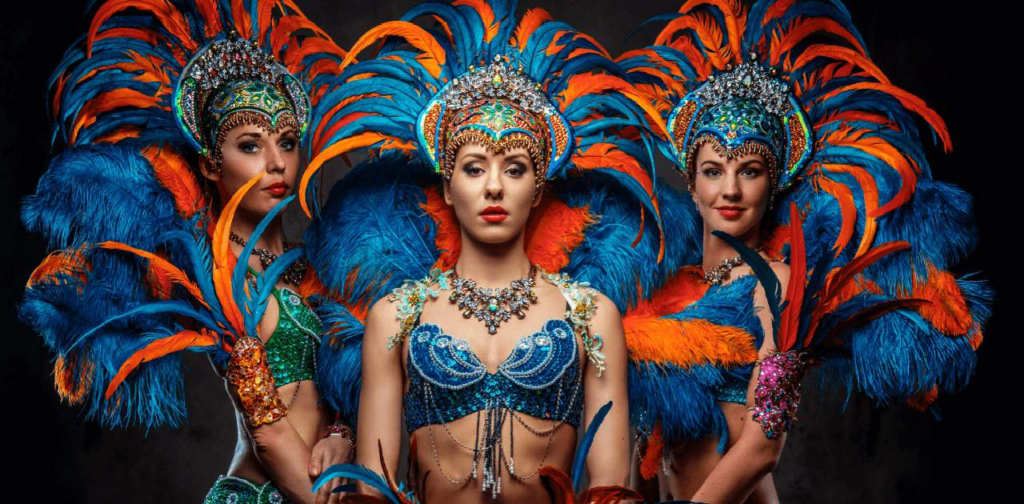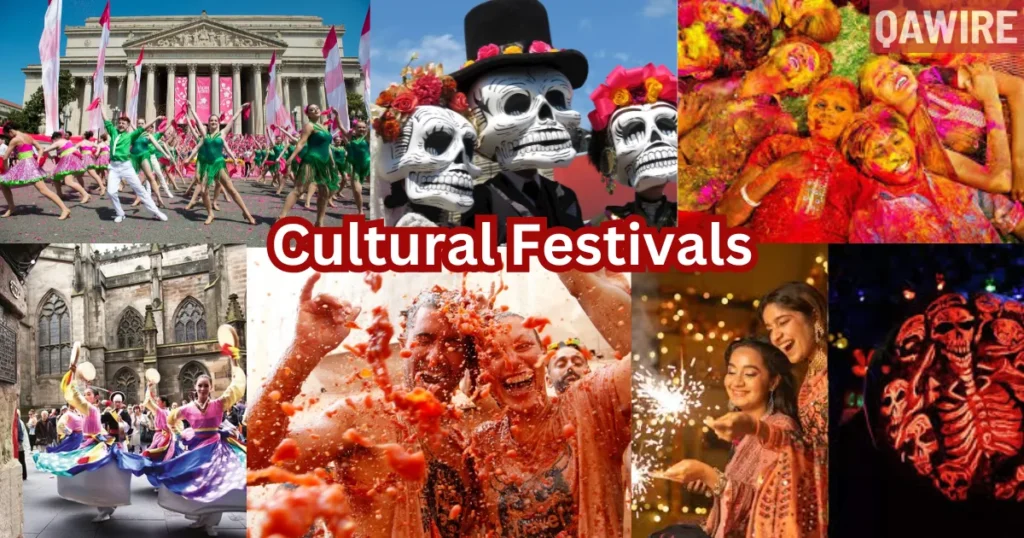Cultural festivals are fun events that bring people together. They celebrate traditions, music, dance, and food. Festivals are not just about fun. They also help communities grow, bring in visitors, and support local businesses. In this article, we will talk about why festivals are important, how they help, and how we can support them.
Table Of Content:
Why Cultural Festivals Are Important

Cultural festivals help keep traditions alive. They teach people about history and customs. These events bring families, friends, and strangers together. They also help people from different backgrounds understand and respect each other. Festivals also make places special. They show what is unique about a town, city, or country. People take pride in their culture and love sharing it with visitors.
Moreover, festivals bring joy and excitement. Colorful decorations, traditional clothes, delicious food, and music make people happy. Festivals also help younger generations learn about traditions that might otherwise be forgotten. Festivals give people a break from daily life and let them enjoy time with their families and friends.
Importance of Cultural Festivals for Local Communities
Cultural festivals are special events that bring joy and bring people closer. They help communities in many ways. They also keep traditions alive and support small businesses.
1. Bring People Together
- Festivals help families, friends, and neighbours spend time together.
- People enjoy music, dance, and delicious food.
- This makes everyone feel happy and connected.
2. Help Small Businesses to Grow
- Local shops sell food, clothes, and handmade products.
- Because of the festival, more people visit and buy things.
- This helps small businesses make more money and grow.
3. Attract Visitors and Tourists
- Many people travel to see and enjoy festivals.
- They stay in hotels, eat at restaurants, and shop locally.
- This helps the local economy and creates more jobs.
4. Keep Traditions Alive
- Festivals teach young people about their culture and history.
- They can watch traditional dances, music, and art.
- This helps them learn and feel proud of their heritage.
5. Bring Happiness and Fun
- This makes everyone feel happy and refreshed.
- Festivals give people a break from their daily routine.
- They enjoy time with family, play games, and take part in celebrations.
Famous World Cultural Festivals and their Impact in Tourism
Festivals are special times when people celebrate traditions, history, and joy. Every country has unique festivals that bring people together. India is home to some of the world’s most colorful festivals—check out this list of must-visit cultural festivals to experience them yourself. Here are some of the most famous cultural festivals around the world:
1. Rio Carnival (Brazil)

- The biggest carnival in the world.
- Happens every year in February or March.
- People wear bright costumes and dance in parades.
- Millions join the street parties and enjoy music.
2. Diwali (India)

- Also called the Festival of Lights.
- Celebrated by Hindus, Jains, and Sikhs.
- People light oil lamps and set off fireworks.
- Families give sweets and gifts to each other.
3. Oktoberfest (Germany)
- The world’s biggest beer festival.
- Held in Munich every September and October.
- People drink beer, eat German food, and wear traditional clothes.
- There is live music and fun rides.
4. Chinese New Year (China & Worldwide)
- Celebrates the start of the lunar new year.
- People light fireworks, watch dragon dances, and decorate in red.
- Families enjoy big meals and give red envelopes with money.
- Each year is named after an animal, like the Tiger or Dragon.
5. Holi (India & Nepal)

- Also called the Festival of Colors.
- People throw colorful powders and water at each other.
- Celebrates happiness, love, and the start of spring.
- People sing, dance, and eat sweets.
6. La Tomatina (Spain)
- A huge tomato-throwing festival.
- Happens in Buñol, Spain, every August.
- Thousands of people throw tomatoes at each other.
- The streets turn red with tomato juice.
7. Mardi Gras (USA – New Orleans)
- A festival full of parades, music, and fun.
- Celebrated in New Orleans before Lent.
- People wear masks, dance, and throw beads.
- Colorful floats and costumes fill the streets.
8. Day of the Dead (Mexico)

- A festival to remember loved ones who have died.
- Celebrated on November 1st and 2nd.
- Families decorate altars with flowers, candles, and food.
- People wear skull makeup and celebrate life.
9. Edinburgh Festival Fringe (Scotland)
- The biggest arts festival in the world.
- Happens every August in Edinburgh.
- People watch theater, comedy, and street performances.
- Artists from all over the world come to perform.
10. Cherry Blossom Festival (Japan & USA)
- The flowers symbolize beauty and the shortness of life.
- Celebrates the blooming of cherry trees.
- Held in Japan (March-April) and Washington D.C. (April).
- People have picnics under pink cherry blossoms.
How Festivals Boost Tourism
- Festivals bring visitors who spend on food, transport, and shopping.
- More tourists create jobs in hotels, restaurants, and event planning.
- Governments invest in better roads, transport, and public spaces.
Economic Impact of Cultural Festivals on Tourism
1. Finding Money
Festivals need money to pay for decorations, security, and entertainment. Many festivals rely on sponsors and donations. Without enough money, some festivals may not happen.
2. Managing Crowds
Big festivals attract thousands of people. Without proper planning, crowds can be unsafe. Organizers work with police and security to keep everyone safe.
3. Weather Problems
Many festivals are held outdoors, so bad weather can be a big problem. Rain, storms, or extreme heat can make it difficult for people to enjoy. Some festivals plan ahead with tents or indoor areas.
4. Not Enough Volunteers
Festivals need people to help with setup, ticketing, cleaning, and guiding visitors. But finding enough supporters is sometimes difficult.
Even with these challenges, many communities work hard to keep their festivals going.
How to Support Cultural Festivals in your Community
You can help keep cultural festivals alive by:
1. Attending Festivals
The best way to support festivals is by going to them. The more people attend, the more successful the festival becomes.
2. Volunteering
Giving your time to help organize or run a festival is very helpful. Many festivals need extra hands to make things run smoothly.
3. Supporting Local Businesses
Buying food, crafts, or souvenirs at festivals helps small businesses. This encourages vendors to return every year and makes the festival more exciting.
4. Spreading the Word
Tell your friends and family about a festival. Share details on social media, invite friends, or write reviews. The more people who know about it, the bigger it will grow.
5. Asking for City Support
Communities can ask their local government to support cultural events. More funding and promotion from city officials can help festivals grow.
Conclusion
Cultural festivals are more than just fun. They bring people together, help businesses, and keep traditions alive. These events make communities stronger and more connected. By joining, supporting, and sharing these festivals, we can help them continue for future generations. So, the next time there is a festival near you, join the celebration! Have fun, learn something new, and support your community. Let’s keep traditions alive and make every festival a special one!



